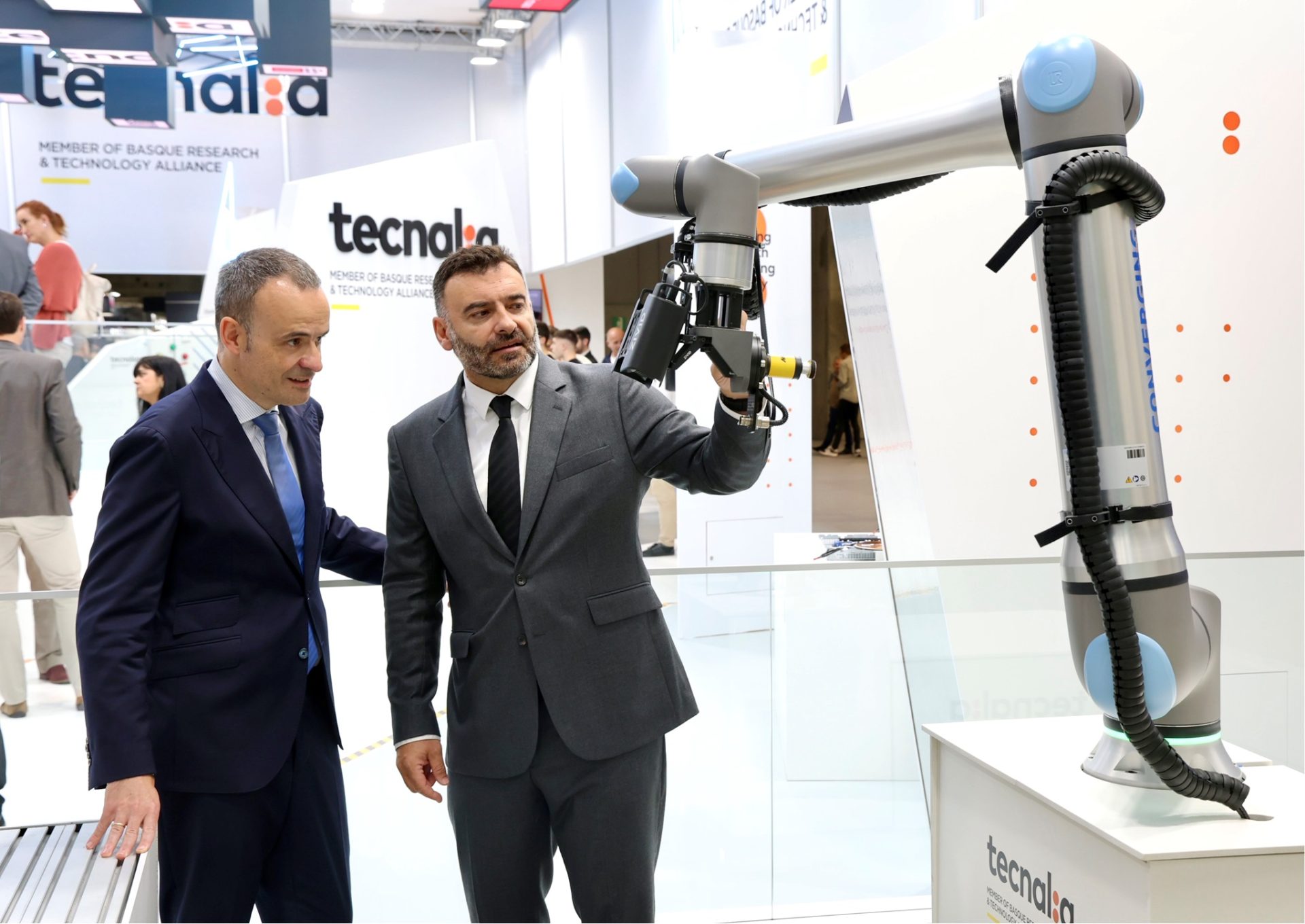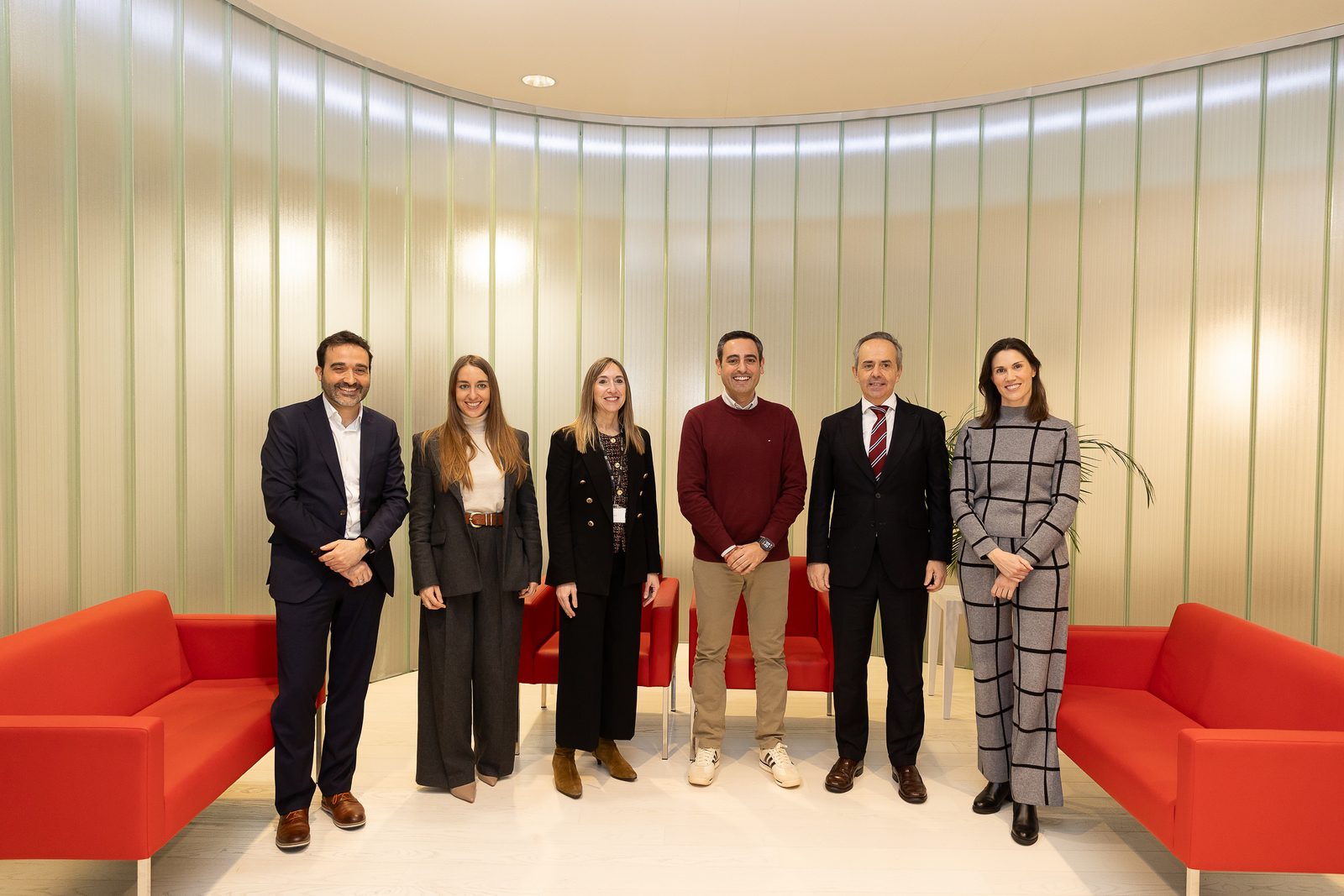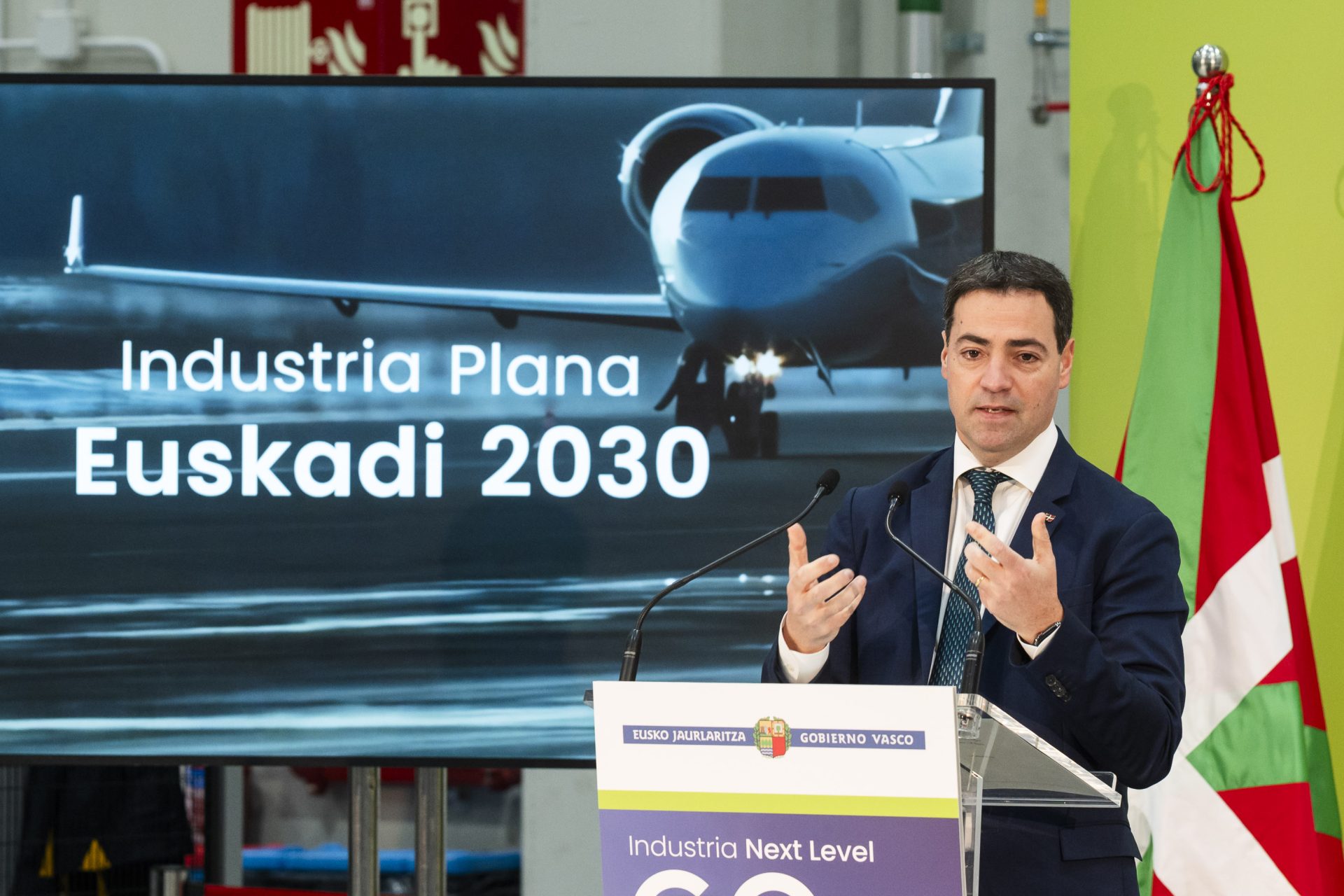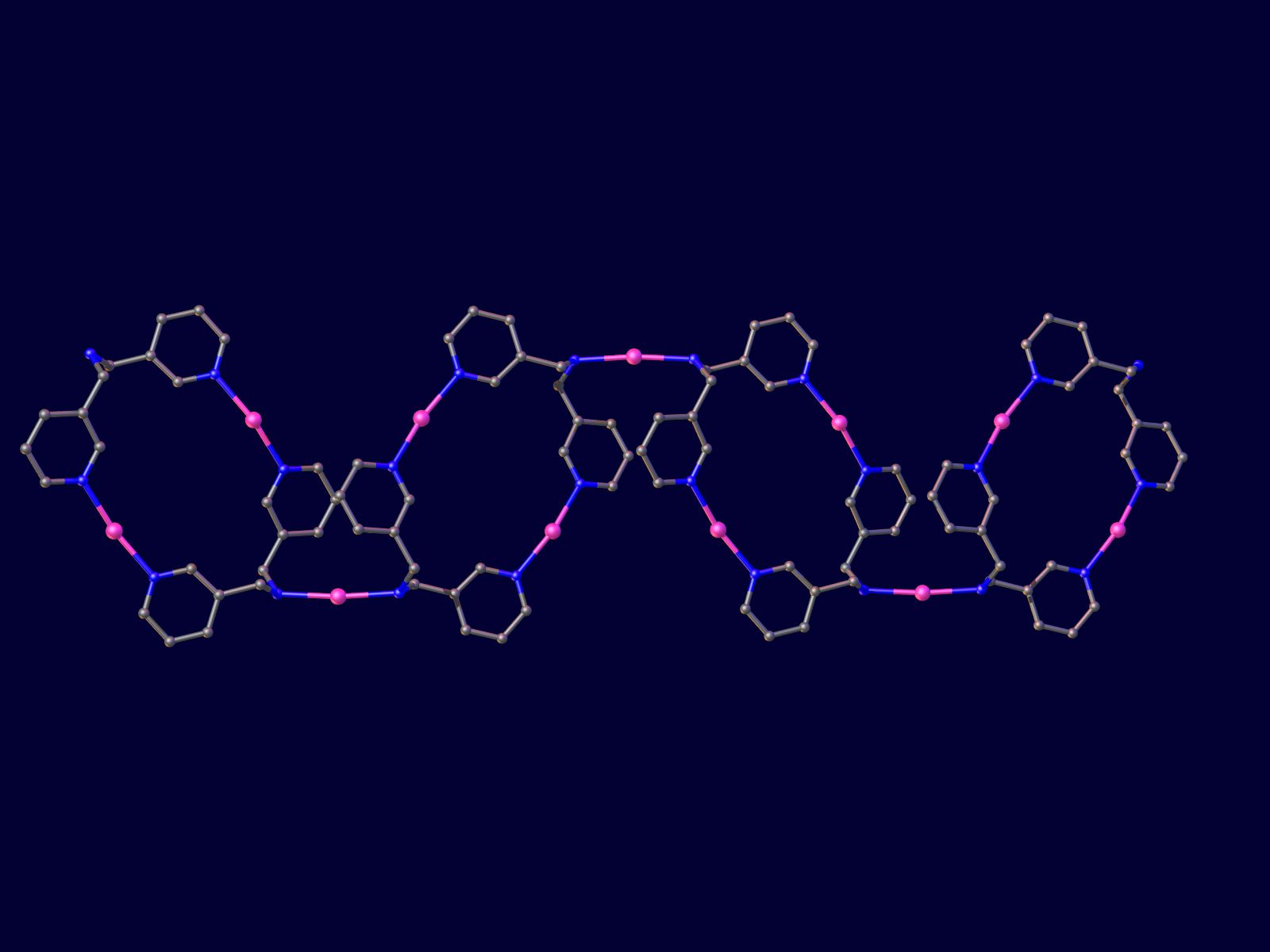TECNALIA makes the ‘conscious’ factory a reality with a 15% increase in activity with industrial companies

The research and technological development centre presents a new factory model at the BIEMH that is characterised by being at the service of people, flexible and collaborative.
They currently collaborate with more than 950 industrial companies, 73% of which are SMEs, to implement technological solutions that improve and optimise aspects such as the quality and efficiency of processes, the availability of production goods, maintenance processes, interaction between machines and people, levels of sustainability through the reuse of materials, and also the quality of services with the rest of the value chain, both suppliers and customers.
Among the technologies presented at the BIEMH, robots that interact in a natural way with people thanks to the use of artificial intelligence techniques, and machines that are teleoperated to operate remotely, stand out.
Smart industry, which has been developing at an accelerated pace since the early 2010s, has evolved towards the ‘conscious’ factory, an even smarter factory model that revolutionises the way in which people integrate with the factory. Based on a more natural interaction that maximises the use of people’s expert knowledge, it is a factory that is characterised by being flexible and adaptive in production, and collaborative with its environment. This is a new paradigm that the TECNALIA research and technological development centre is implementing in industrial companies, increasing its activity with them by 15% in the last two years.
This was announced at the BIEMH 2024, which is being held this week at the Bilbao Exhibition Center BEC. Agustín Sáenz, TECNALIA’s Director of Strategy, Market and Technology, explained that they currently collaborate with more than 950 industrial companies, 73% of which are SMEs, to implement technological solutions related to collaborative robotics, automation, connectivity, applied artificial intelligence and the circularity of materials. This activity has led to a turnover for TECNALIA of 94 million euros in the last two years.
At the leading International Machine Tool and Advanced Manufacturing Fair, TECNALIA has a stand of almost 300 square metres where, through the integration of artificial intelligence, robots, connectivity and manufacturing technologies, it represents this new factory model that evolves on four levers of transformation: technology at the service of people; flexible production, capable of adapting to changes to optimise the use of resources; a factory extended to more spaces and facilities; and collaboration with the industrial ecosystem.
According to Sáenz, ‘this is highly advanced and automated manufacturing with people at its core, around which innovations are designed and from there spread to machines and production lines. These technologies, sensors and artificial intelligence systems work together to optimise the production process, in constant communication with people. And this factory also adapts to optimise the use of resources, and operates in communication with its environment, extending beyond the factory to other facilities and agents in the value chain’.
For his part, David Sánchez, Director of Industry and Mobility, stated that ‘in the current economic context, which is more complex and competitive, the introduction of new factors such as the environmental transition, the increase in cybersecurity due to the proliferation of attacks, or the need for new personalised models in production, are leading us to face new challenges. TECNALIA must be the ally of companies for the development, deployment and adoption of clear strategies for technological innovation in the medium and long term’.
Revolutionising interaction with people
The ‘conscious’ factory is, first and foremost, an intelligent industry whose main characteristic is that it transforms the way in which people interact with the factory, under the ‘human-centric’ concept, putting a new paradigm of plant and business control in their hands in an efficient, intelligent way, anticipating the needs of each moment. At the BIEMH, TECNALIA is showing technological solutions, in interaction with people, such as the programming by conversation of the flexible handling tasks of a humanoid robot thanks to generative AI, a technological solution that allows the tasks of a robot to be planned through Augmented Reality, or an intelligent assistant, developed for the company Industrias Puigjaner, which understands spoken questions about maintenance incidents and proposes the appropriate solution by consulting the necessary technical documentation.
Secondly, this factory is flexible, adapts to the changes required in production and, hand in hand with new technologies, incorporates ‘awareness’ of what is happening around it. To achieve this, TECNALIA has developed different solutions to promote an adaptive factory, such as an intelligent system for dynamic production planning, capable of learning and adapting its responses in changing scenarios; an automated analysis solution that allows training predictive models of the behaviour of a production process, without the need for advanced programming knowledge; the adaptation of the Digital Product Passport, in this case for machines, on which TECNALIA is working with the manufacturing sector to apply this traceability tool to production assets and improve the sustainability of smart manufacturing ecosystems; and new manufacturing systems will be shown, such as the MOLDAM hybrid robotic cell, developed for Aernnova and Suzlon, which implements a manufacturing process based on 3D printing of large thermoplastic components.
An extended and collaborative factory
Thirdly, it is an extended factory, which goes beyond presence and which, with the help of teleoperation technologies, makes it possible to manage manufacturing from different locations and control production assets at the same time from a single point. This type of technology can be seen at the fair through a teleoperated logistics stand, from which technicians will manipulate a sensorised mobile platform for transporting materials, which will be located more than 100 kilometres away from the fair. For its part, thanks to the collaboration with Plain Concepts, TECNALIA integrates the telerobotics technology it has developed in the SPOT quadruped robot, which allows it to: access hard-to-reach environments and perform remote inspection and manipulation tasks through a robotic arm and a haptic claw, to remotely feel what the system is experiencing as it interacts with its environment.
Fourth, the ‘conscious’ factory fosters a collaborative industrial ecosystem, where creating connected value chains promotes resilience and flexibility. Thus, in collaboration with Ibarmia, Nicolás Correa and Shuton, TECNALIA has developed a machine self-diagnosis system to monitor the state of health of machines, increase their availability and guarantee solid and stable operation.




